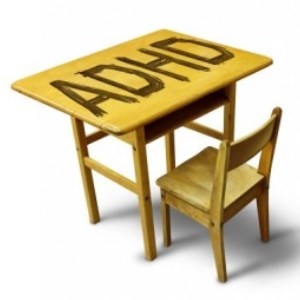
More and more children across the globe are being diagnosed with and placed on medication for ADHD.
Hyperactive children can be extremely disruptive, especially in a group or classroom situation, and medication might seem to be the most convenient solution for parents or teachers.
Lifestyle changes
While the importance of Ritalin and other ADHD drugs should not be underestimated, additional lifestyle changes such as a healthy diet and exercise can also play an important role in managing symptoms.
The following are alternative and/or complementary treatments for ADHD:
- Establishing a comprehensive daily routine
- Diet and nutrition
- Supplements
- Exercise
- Biofeedback
- Relaxation techniques
- Identifying and eliminating allergens
The role of exercise
In today’s world, we are exercising less than ever before – a reality that may have undesirable effects on our concentration, learning and other cognitive abilities.
An article in the journal Paediatrics strongly agrees on the positive effects of exercise and found that children who exercised regularly showed “enhancement of cognitive performance and brain function”.
Researcher, Professor Charles Hillman of the University of Illinois, remarked that physical activity is a good investment for all children, especially those kids who are hyperactive.
Read: Exercise discipline reaps rewards
Endorphins
In an article published by Additude, Associate Clinical Professor of Psychiatry at Harvard Medical School, John Ratey explains that he thinks of exercise as medication that could be a replacement for stimulants in certain people. Exercise helps increase attention and improves mood.
Exercise causes the brain to release important chemicals called endorphins, which are hormone-like compounds that regulate mood, pleasure and pain.
Physical activity also elevates the brain’s dopamine, norepinephrine and serotonin levels, neurotransmitters that are lower in people with ADHD.
Read: Brain chemistry uncovered
A 2011 study in the Journal of Attention Disorders reported that only 26 minutes of physical activity every day for a period of eight weeks significantly lowered ADHD symptoms in school children and concluded that physical activity looks promising for addressing ADHD symptoms in children.
Impact on focus and mood
Another study published in the journal Paediatrics, showing that regular physical activity can decrease ADHD symptoms and improve cognitive function in children has sparked the interest of parents and educators.
Dr Betsy Hoza, professor of psychology at the University of Vermont and her colleagues found that for kids between pre-primary and grade two, only half an hour per day of moderate to vigorous exercise had a positive, measurable impact on the focus and mood of kids with the impulsive-hyperactive type of ADHD and those with the more inattentive type.
Read: Proven benefits of exercise
Although the results of the study were promising, Dr Hoza cautioned against stopping traditional ADHD interventions like stimulant medication, behavioural therapy and the combination thereof.
Dr Hoza adds that unless a child is physically challenged there is absolutely no reason why a parent cannot add physical activity to the treatment they are already using.
Something has to be done
An interesting fact is that all the kids in the study, including the control group, showed improved cognitive functioning after engaging in exercise.
To counter the problems some kids may have with organised sport, other less competitive activities that avoid potentially stressful situations may be considered. Examples of such forms of exercise are swimming, hiking and cycling.
In the light of these findings it would be an oversight not to include or at least consider physical activity as part of the response to ADHD.
Something clearly has to be done, as in the USA the percentage of children with ADHD diagnosis continues to increase: from 7.8% in 2003 to 9.5% in 2007 and to 11.0% in 2011.
Read more:
SA has one of the highest prescription rates for ADHD medication
Could stress be mistaken for ADHD in SA?
References:
KidsHealth: What is ADHD? http://kidshealth.org/en/parents/adhd.html
The Atlantic: Exercise Is ADHD Medication (2014). http://www.theatlantic.com/health/archive/2014/09/exercise-seems-to-be-beneficial-to-children/380844/
Child Mind Institute: Side Effects of ADHD Medication. http://childmind.org/article/side-effects-of-adhd-medication/
ADDITUDE: An Alternative ADHD Treatment Without Side Effects. http://www.additudemag.com/adhd/article/3142.html




 Publications
Publications
 Partners
Partners










